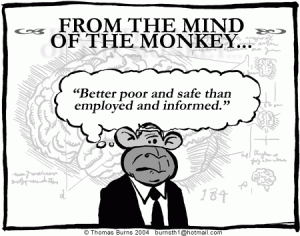 Breath is access to Soul, to all-of-it, your higher self. Finding the blockages in breath and eliminating them
Breath is access to Soul, to all-of-it, your higher self. Finding the blockages in breath and eliminating them
Nearly all of humanity is infected with the mind virus. Slowly we constitute our whole self and our whole world as our minds, unaware that we are several magnitudes more powerful than the mind… and by mind I mean the storage device of the brain, not the whole brain.
When I ask people on the calls to watch their breathing, or look for blockages, without exception they hold their breath: the mind tells them to do so. Why would the mind do that? Like all virus it is only interested in perpetuating itself, and when you are asked to watch or observe, accidentally! you might access your witness, your Observer, and then you will see the mind for what it is: a pea size hard drive able to do search and compare, and that’s it.
That is the part, that pea size hard drive that you have been asking to run your life effectively.
Continue reading “Breath is access to Soul, to all-of-it, your higher self.”







 The Mysteries Of The Universe
The Mysteries Of The Universe


